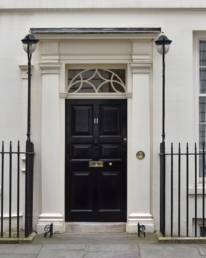We take a look at some of the major financial considerations being self-employed involves, as well as explaining how an independent financial planner can help take the strain.
If you’re thinking about becoming self-employed, you’re not alone. According to Statistica, at the end of December 2021 there were almost 4.2 million self-employed workers in the UK. That’s almost one million more self-employed compared the end of December 2020.
Making the transition to self-employed means taking on new responsibilities, including your business finances.
Getting to grips with taxes
One of the biggest headaches most self-employed people face involves dealing with their taxes. Whether you choose to operate as a sole trader, or through your own limited company, you’ll need to have a reasonable working knowledge of how to pay yourself, as well as the different taxes you are expected to pay.
For example, as a sole trader, you won’t be paid via the Pay As You Earn (PAYE) scheme, which means you’ll be expected to make sure you pay the appropriate amount of Income Tax on your earnings, as well as making National Insurance contributions. You’ll need to get used to completing your tax returns via Self Assessment every year. If you’ve started your own limited company, you have greater choice over how you pay yourself and most people choose a combination of salary and dividends paid by the company itself. If you run a limited company, your accounts must be filed with Companies House and you’ll need to complete a company tax return with HMRC, as well as paying your taxes annually through Self Assessment.
But the tax headaches don’t end there. Depending on how much you earn, you could also be required to charge Value Added Tax (VAT) for your services, and pay a VAT bill to HMRC every quarter. You may also be required to pay tax on your investments and other sources of income.
Getting to grips with tax issues might sound painful, but alongside your Accountant, an independent financial planner can help advise you on all your responsibilities, making sure you don’t get fined by HMRC while ensuring you don’t end up paying tax unnecessarily.
It can be hard for the self-employed to set aside some of their income to make pension contributions
Putting money aside for a pension
When you’re an employee, your employer is legally obliged to set up a workplace pension for you. But when you’re self-employed, your pension becomes your responsibility. As a result, it’s perhaps unsurprising that so many self-employed people put off paying into a pension. According to recent figures from HMRC, the number of self-employed professionals making pension contributions slumped to record lows before the pandemic. And given the upheaval so many self-employed workers have faced over the last few years, their pension contributions could be even smaller now.
It can be hard for the self-employed to set aside some of their income to make pension contributions, but a financial planner can help – both by recommending a pension that will get you investing for retirement, as well as helping to create a financial plan that will allow you to make regular pension contributions. Because the UK government gives individuals a tax-free top-up when they make contributions, even a small regular amount can grow to an impressive retirement pot. An independent financial planner can help to build a pension plan that makes the most of all available tax allowances, and is invested in line with your own individual attitude to risk, capacity for loss and retirement goals.
Protecting your income
After you’ve got your pension sorted, it’s important to start weaving a financial safety net – particularly if you have family members who rely on you financially. Being self-employed means you are your greatest financial asset – the weight of the business rests on your shoulders. But this also means you have to prepare for the possibility that your income could fall significantly or suddenly stop – either through personal reasons such as health issues, or unexpected business challenges (the pandemic was a painful lesson for many people).
The good news is that there are lots of options that can help you to protect your self-employed income and / or outgoings against a number of eventualities. This could include insurance cover such as income protection insurance, critical illness cover, or mortgage protection insurance. Financial planning that includes different insurance options should give you confidence you’ll have a safety net to fall back on even, if something unfortunate or unexpected does happen.
Being self-employed can make it harder to find a mortgage
Building your savings and investments
Many people find working for themselves is not only profitable, but financially empowering. Running your own business often means earning more money than would be available to you via a salaried role. When your business is up and running, you should start thinking about how to build up your savings – an emergency cash fund is always useful to have – as well as making investments designed to grow your money over the longer term.
Just as with pensions, self-employed people often feel too concerned with the day-to-day running of their business to focus on setting money aside for the future. But talking to an independent financial planner will help you to start making plans based on the amount you’re able to invest, and they’ll also recommend the most suitable investments according to your personal risk tolerance.
Helping to secure a mortgage
Being self-employed can make it harder to find a mortgage. That’s because many high street lenders are often reluctant to lend because they see self-employed income as too unpredictable. But this doesn’t mean you are locked out of the mortgage market entirely, nor should it mean you end up paying over the odds for a mortgage compared to salaried mortgage borrowers.
An independent financial planner will have access to the entire mortgage market, including specialist lenders who take a more understanding approach to the needs of self-employed applications. They will also be able to walk you through the mortgage application process – including all of the financial information you’ll need to provide – and make sure you secure a competitive mortgage that doesn’t leave you feeling disadvantaged.
Getting the most out of life
Financial planning isn’t just about dealing with life’s pitfalls. It’s also the best way to ensure you are prepared for the future, and put in place actions now that will help you achieve the lifestyle you want. Being self-employed can frequently feel much more precarious than working for someone else. At Amber River, our independent financial planners work with a range of clients, including the self-employed, designing financial plans that give them confidence about the future. We can help to provide you with that stability and forward planning that helps you feel more in control. After all, being in control is the reason most people choose to be self-employed in the first place.
Remember that the value of pensions and any other investments, and any income you take from them, can fall as well as rise, and you may get back less than you invested.
Get in touch
To speak to one of our team, arrange an appointment or find out more, call 0800 915 0000, or alternatively use our contact form here.
Disclaimer
The information within this article was correct at the time of publishing, but laws and tax rules are subject to change. Your circumstances and where you live in the UK may also have an impact on your tax treatment.
Related Posts
3 February 2026
Read More

6 January 2026
Read More

5 January 2026
Read More

26 November 2025
Read More



